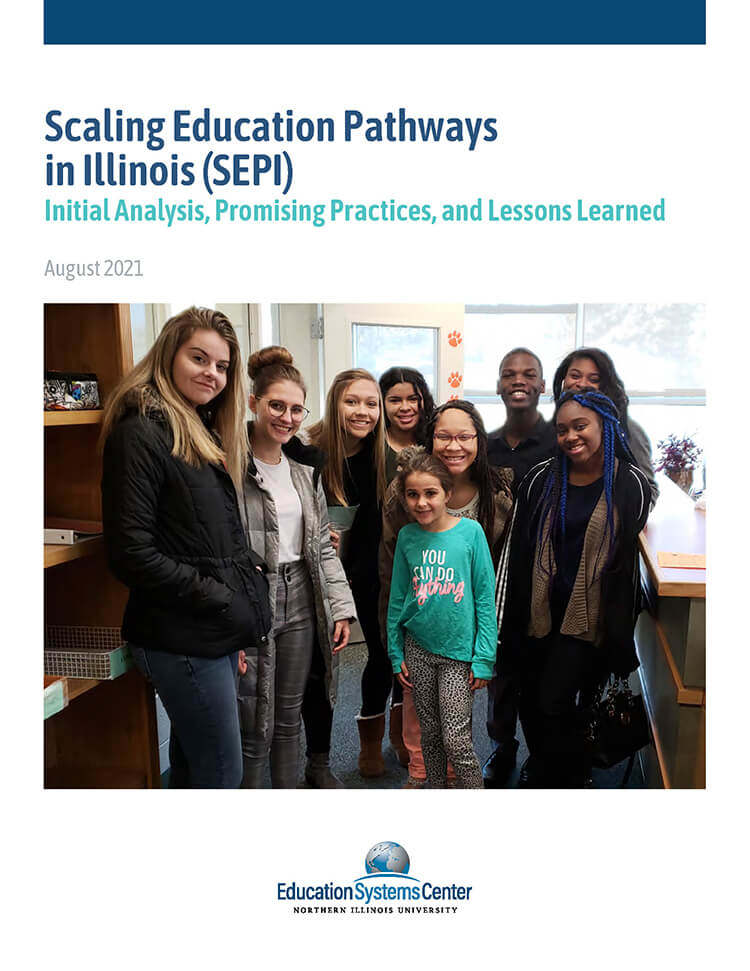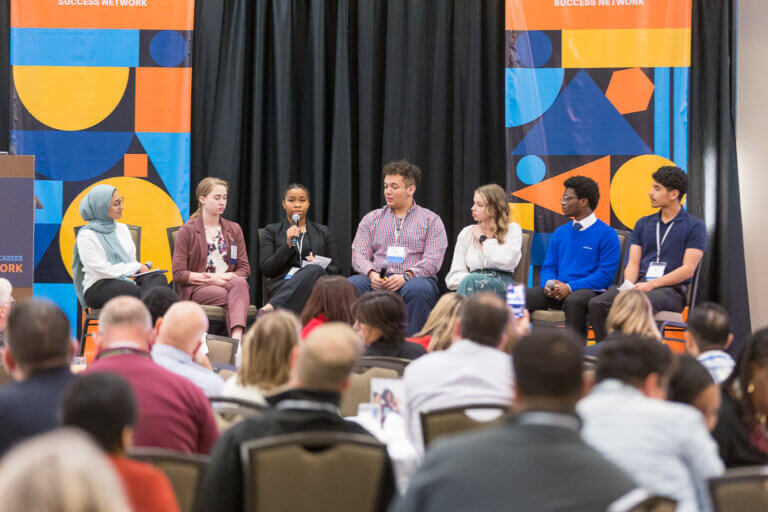Illinois, like many other states, faces a teacher shortage that is particularly acute in rural and urban classrooms. The state’s teaching ranks also lack needed diversity, as the teacher workforce is 85-percent white even as mounting research shows students of all backgrounds benefit from having teachers of color. To help address these challenges, EdSystems partnered with the Illinois P-20 Council and The Joyce Foundation to launch Scaling Education Pathways in Illinois (SEPI). In the 2019–20 school year, SEPI began supporting collaboratives to build streamlined education pathways aligned with the PWR Act’s College and Career Pathway Endorsement requirements.
With support from the McDougal Family Foundation and The Joyce Foundation, EdSystems developed an analysis of the initial implementation of SEPI with input from the first cohort of collaboratives. It was undertaken to understand how the components of the education pathway were being executed in practice and to collect promising practices and lessons learned. It includes the stand-alone sections of Implications and Takeaways, Key Findings, By the Numbers, and Promising Practices. Some noteworthy takeaways include:
- Prioritize Underrepresented Students: To recruit and support underrepresented students, high schools should prioritize targeted one-on-one outreach, structured interactions with teachers from underrepresented populations, and assignments that showcase how educators can celebrate diversity.
- Publicize Currency: All recruitment discussions and materials should include up-to-date information about the currency available to students who complete the College and Career Pathway Endorsement in education.
- Exploit Virtual Opportunities: High schools should capitalize on innovations from the shift to remote learning and incorporate experiences such as virtual observations and internships, online alumni guest speakers, and short pop-in virtual observations followed by class discussions.
- Find Talented Cooperating Teachers: High schools should prioritize the careful selection of cooperating teachers to ensure positive student experiences.
The Scaling Education Pathways in Illinois analysis also includes a preliminary inquiry into education pathway student motivation and experiences. Regarding what the education pathway experience provides, students said they appreciate the ability to investigate education as a career before enrolling in college. One said, “I kind of feel like we are getting a little bit of a head start compared to other people going into teaching in college, because we already know some of the stuff and we already know beforehand that yes, this is something I want to do.” Another said, “I think it definitely shows you all of the work that goes into being a teacher, so even if you’re just a little bit interested this class can really make or break. It’s shown me what I’m going to have to do. If you’re not really sure if you want to do that, then this class can be instead of wasting money in college.” The inquiry into student motivation and experiences will be expanded in the coming year with the assistance of researchers at Northern Illinois University’s College of Education.



